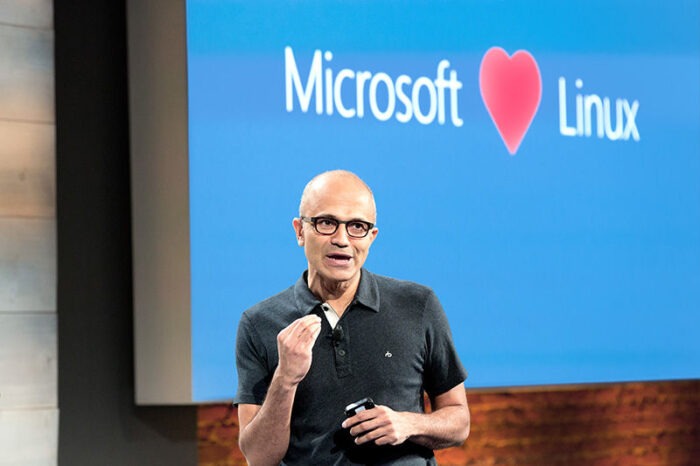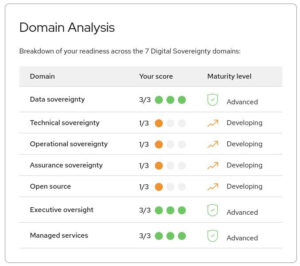For the next five years, Microsoft will be under the watchful eye of Germany’s Federal Cartel Office, which will be seeking to thwart any monopolistic activity coming from Redmond proactively.

We’re a little late with this, but we just learned tonight that on September 30, Germany’s Federal Cartel Office (called Bundeskartellamt in German) announced that Microsoft will be under “special abuse control” for a period of five years. This status was ordered after the FCO determined that Microsoft holds a market position of “paramount significance,” which means it has enough of a competitive edge to carve out monopolies for itself at will.
In a way, FCO’s move puts Microsoft in regulatory probation, and gives regulators the power to intervene early to prevent potentially harmful anti-competitive behavior.
Even though FOSS Force is late to the trough here, we’re reporting this story anyway because we think it’s important and figure that if we missed it when it happened — as close as we pay attention to tech news — then others did too.
We also find this story somewhat surprising, but not because Redmond has fallen afoul of antitrust regulations. After all, we’ve been around long enough to remember the Netscape brouhaha and federal Judge Thomas Jackson’s order to break the company into two parts. What we find surprising is that more than a quarter century after Bush replaced Clinton as POTUS and nixed Judge Jackson’s order, an important government on the world stage is again threatening to hold the company accountable and regulate its activities.
Threats don’t necessarily turn into actions however, so for the time being we’re stuck waiting to see whether Microsoft takes heed of Germany’s actions and makes appropriate adjustments to the way it does business and if not, whether there is bite behind FCO’s growl.
One organization that’s hopeful that this move by the German government will have a positive effect on Microsoft’s actions is German-based Nextcloud, a relatively small company that markets a eponymous cloud platform that directly competes with Microsoft in several areas such as file sharing.
“Over the past three years, Nextcloud has submitted extensive documentation and other evidence of anti-competitive behavior by Microsoft,” Frank Karlitschek, Nextcloud’s co-founder and CEO said in a statement after last week’s FCO annoncement. “The Federal Cartel Office today determined that Microsoft has particular market power. This is an important step to prohibit future anti-competitive practices by the US company.”
The three year period mentioned by Karlitschek is important, because it illustrates that it might take a while to find out whether the move by the German government really has teeth. Jos Poortvliet, co-founder and communications director at Nextcloud, explained in an article he wrote on the company’s website that it was three years ago that a formal antitrust complaint against Microsoft was filed with German authorities and the EU by a fairly large group of tech companies that was led by Nextcloud.
“In 2021 we assembled a coalition of like minded European tech companies and filed a complaint with the European Commission’s antitrust authorities,” he said. “There has been virtually no movement on that for years. We also filed a complaint with the German antitrust authority, which in 2023 announced the start of an investigation to determine if Microsoft might have a lot of market power. After a year-and-a-half, they are now at that point. An investigation thus has not been started, but the doors are open for them to look into the actual behavior of the tech giant from Redmond.”
During that three years, he pointed out, Microsoft has further increased its anti-competitive behavior, in part by integrating OneDrive deeper into Windows and making it more difficult to use Windows without a OneDrive account (which is not much different than Google making it difficult to use Chrome browser without a Google account). Added to that, in June Microsoft began automatically backing up Windows users’ files to OneDrive without user permission, doing so as a “service.”
In addition, Poortvliet said, Microsoft has blocked Nextcloud’s attempts to access Microsoft’s interoperability API’s that would let Nextcloud users save files to Nextcloud from inside Microsoft Office.
“The European Commission has made little progress on the complaint we filed,” Poortvliet added. “Interestingly, a later complaint by another American big tech firm, Salesforce [owner of Slack] about Teams bundling with Microsoft 365 did result in a relatively prompt investigation.”
Christine Hall has been a journalist since 1971. In 2001, she began writing a weekly consumer computer column and started covering Linux and FOSS in 2002 after making the switch to GNU/Linux. Follow her on Twitter: @BrideOfLinux









Satya is probably shivering in his office….
Seriously, as long as German government pay more than 220 Mio € annually for licenses to M$ while cutting the 10 Mio for OpenSource projects…there is nothing to worry for M$, Business as usual.
German government does not have the balls for an opensource strategy